
1 Do you think it is more important to increase the council’s environmental work in the region or to halt rates rises, and why?
2 What are your goals and what should the priorities be for your council?
Dunedin
 Hilary Calvert
Hilary Calvert
HILARY CALVERT

Ward: Dunedin.
Age: 64.
Occupation: Columnist.
Question 1:
We can do both. The council is not using its resources to best advantage. It has reduced capacity in its core regulatory services, while at the same time it has significantly increased the communications staff. Doing the right thing will always trump trying to sell a shambles. Wastage such as the many millions spent in looking for a new building is an example. We can and should do better.
Question 2:
My goal is better protection of our environment The priority must be to establish what water we have available so that we are in a position to allocate our water responsibly. Water quality should be improved and protected. Resource consent processes should be within the law, and decisions should be made equitably. Rabbits, wallabies, wildings and aquatic pests should be taken seriously and appropriate measures taken for control, at the expense of landowners, where appropriate.
 Michael Deaker
Michael Deaker
MICHAEL DEAKER

Constituency: Dunedin.
Age: 77.
Occupation: Education and communications consultant.
Question 1:
ORC should increase its environmental work. That's what ratepayers told us when we set the recent long-term plan. More work was wanted on water quality, wilding pines, environmental monitoring, biodiversity and pest management, clean air and adapting to climate change. That's what we've done, and ORC rates have gone up but they are still less than $1 per day for most city households. The increases will taper off from 2020.
Question 2:
My goals are: increase the size of the ECO Fund so that more community groups can do more great work; grow the scope and quality of public transport; ensure the water plan review is finished on time; help the council communicate better so that people can value the work it does; consider a regional youth council. Council priorities must be water quality and quantity and lowering the recent rate of costs increases.
 Marian Hobbs
Marian Hobbs
MARIAN HOBBS

Constituency: Dunedin.
Age: 71.
Occupation: Retired (but serving on a range of boards).
Question 1:
It is vital that the Otago Regional Council increases its environmental work. Failure to repair damage to our air, soil, rivers and lakes will cost much more in lost opportunity than a rates increase. Otago ratepayers pay one of the lowest rates in New Zealand. But for all that I would want to investigate the total finances and budgets of the ORC before going for the simple solution.
Question 2:
My immediate goal is to speed up the work on water quality and access, including the work on the almost expiring ``deemed permits''. The council also needs to increase its level of monitoring to ensure that land misuse is not contributing to poorer water quality.
And I want to run the lens of lowering greenhouse gases, and mitigation of the effects of climate change, over all our strands of work, including public transport provision.
 Tony Hunter
Tony Hunter
TONY HUNTER

Constituency: Dunedin.
Age: 61.
Occupation: Principal.
Question 1:
Both are important - does one come at the expense of the other? Rate rises need reining in. The ORC has to live within its means; is it right for the ORC to increase rates when it has spent nearly $10 million trying to find a new building site, and plans to spend $30 million further? Increased environmental work is important, especially managing air and water quality, but sources of funding should be managed within existing budgets.
Question 2:
I want to see more support for and investment in Dunedin communities - especially South Dunedin. Collaborative plans to protect our coastal areas from erosion and flooding need to be developed and acted upon. I want to restore community engagement and faith in the ORC, particularly in the areas of bus services, water control and air quality. To leave a legacy of a collaborative, future-focused council that includes youth, schools and young adults in environmental issues.
 Matt Kraemer
Matt Kraemer
MATT KRAEMER

Constituency: Dunedin.
Age: 36.
Occupation: Software engineer.
Question 1:
Capitalism allows 7 billion people to eat but ignores long-term risks for short-term gains. The role of the ORC is not saving money but balancing out capitalism's negative effects on our local environment. Flood control and erosion are ORC responsibilities and saving South Dunedin isn't going to be cheap. The ORC must spend as little as possible and as much as necessary for this crucial role.
Question 2:
Excess carbon-dioxide from cars is almost certainly influencing global climate. Warmer weather would be welcome but sea level rise could destroy South Dunedin.
Great public transport is a good solution. It reduces car usage and carbon-dioxide emissions while simultaneously improving foot traffic for local businesses, relieving parking pressure and improving public health. A $60/month suburban commuter bus pass and commuter-optimised routes will help solve these problems.
 Tim Mepham
Tim Mepham
TIM MEPHAM

Constituency: Dunedin.
Age: 59.
Occupation: Accountant/businessman.
Question 1:
I don't agree with halting rates rises. The ORC's 10-year annual plan is based on annual rate rises and addresses the important environmental management issues that face the Otago community. The associated costs must be met. General rates only contribute around 14% of the ORC's expenditure so the planned percentage increases may seem high but in dollar terms are not as significant. A 1% increase spread across 115,000 ratepayers is 77c per year.
Question 2:
1. Clean water and a healthy environment, with a focus on ensuring additional resources are available for increased monitoring of water quality and breaches. I would also support investigating innovative water storage options.
2. Sustainable economic development, by supporting the goal to have high quality water without limiting land use activities that may impact on water quality.
3. Ensuring that the ORC has the resources and processes in place to meet its responsibilities.
 Andrew Noone
Andrew Noone
ANDREW NOONE

Constituency: Dunedin.
Age: 59.
Occupation: Farmer, RMA commissioner, councillor.
Question 1:
Core function of elected members is to consider how much funding is allocated to each activity, such as environmental work, alongside ensuring rates are affordable. Each requires a judgement call after consideration of all relevant information, including central government policies and standards that need to be met. Council's own monitoring information could well have uncovered a reason further resources are needed to help achieve a desired outcome.
Question 2:
My priorities for council are focused on enhancing management of our natural environment, (in particular our fresh water), continue the momentum on improving public transport to meet the needs of our community, and continue to build a stronger relationship with the DCC by working together to resolve issues of mutual interest, (such as public transport). I'd like to find a permanent solution that deals with the deficiencies that head office has.

GRETCHEN ROBERTSON
Constituency: Dunedin.
Age: 41.
Occupation: Deputy chairwoman ORC.
Question 1:
"The environment'' is fundamental to sustaining us and all we value. Our livelihoods, food, recreation, and identity stem from our surroundings. Communities prioritise their environment highly and want specific work done. Regional councils are not doing their job if they are not investing wisely in this. This investment should be prioritised and planned to effectively and efficiently achieve outcomes. Investing wisely is about "value for money''.
Question 2:
I believe in team culture. A team which delivers clear messages and real outcomes. This will rely on good science to make the right decisions. ORC must set clear, agreed bottom lines and ensure these are met. Focus is needed on biodiversity, wetlands, waterway health, coastal ecosystems, appropriate development, and climate change. Sustainable farming, transport, urban development and infrastructure are areas where we should plan for the future, not the past.
 Andrew Rutherford
Andrew Rutherford
ANDREW RUTHERFORD

Constituency: Dunedin.
Age: 42.
Occupation: Tour operator.
Question 1:
False dichotomy. We can have both. Rates rises could be halted by unitary council that invests in Dunedin. One rates bill and one headquarters for ORC and DCC. Auckland has one council, why does Dunedin need two? A pollution rate would mean that any increase in revenue would be paid for by those who cause air or water pollution.
Question 2:
Unitary council is number 1 for efficiency and transparency. Chalmers Property should be run directly by the councillors and sell its North Island properties and invest in Dunedin instead. Shore powering of ships at Port Otago to reduce pollution and environment effects. More parking in Dunedin by using the ORC vacant land. Improved pest management. Better transport links between inland and coastal Otago.
Working together ORC and DCC can solve some of our outstanding problems.
 Bryan Scott
Bryan Scott
BRYAN SCOTT

Constituency: Dunedin.
Age: 58.
Occupation: Project manager/engineer.
Question 1:
Otago faces significant environmental issues. Freshwater (rivers) quality and quantity, biodiversity, climate change and urban development. All largely due to urban and rural intensification without the necessary environmental consideration and investment. It is essential that we increase our council's and communities' environmental focus for the benefit of our children and planet. Yes, rate increases need to be reduced in the future and can be better balanced by investment returns and making the polluter pay.
Question 2:
My number one goal is to achieve good, sustainable water quality and flows throughout Otago's waterways. This requires ongoing improvements in environmental practices, water plans and landowner accountability. For example, compulsory landowner environmental plans, better effluent management, water groups, plant natives, integrate new national policies, water testing and enforce regulatory rules. Other priorities include climate change and adaptation, community liaison, biodiversity, air quality, transportation, urban development and an agreed plan for South Dunedin.
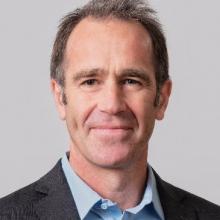 Scott Willis
Scott Willis
SCOTT WILLIS

Constituency: Dunedin.
Age: 50.
Occupation: Manager of the Blueskin Resilient Communities Trust.
Question 1:
Why can't we do both? Environmental management is the responsibility of the ORC, not a ``nice to have''. Fiscal responsibility is a statutory requirement, also not negotiable. Greenhouse gas emissions are on the rise, our waterways are degrading and our biodiversity is at risk. I think it is clear we need to increase environmental work and develop climate change action plans but also look at the bigger picture of ORC budgeting.
Question 2:
In 2017 ORC signed the Local Government Leaders Climate Change Declaration. My goal is to incorporate climate change considerations into council work programmes and decisions. Public transport reduces emissions and improves wellbeing. Better environmental management means clean air and clean waterways, and good policy will get us to 100% renewables.
 Rob Woodhouse
Rob Woodhouse
ROB WOODHOUSE

Constituency: Dunedin.
Age: 52.
Occupation: Business manager.
Question 1: It is imperative that we continue to increase the council's environmental work throughout Otago, simply because that is the sole reason why the Otago Regional Council exists. Targets are being missed. Air quality is too low, rivers and lakes are not swimmable. Rabbits and wallabies are on the rise. There is no reason for the recent massive rates hikes. The ORC is sitting on $650million of assets that should be returning a higher dividend.
Question 2: My goal is to bring a balanced approach to pragmatic decision making. We must have meaningful relationships between the ORC and all the community balancing the competing demands of the environment, the region, and the people.
I am very concerned about the lack of true progress throughout Otago. We need to return to the core services of the Otago Regional Council:
• Clean air.
• Clean water.
• No pollution.
• No pests.
• No compromise.
Dunstan
 Graeme Bell
Graeme Bell
GRAEME BELL

Constituency: Dunstan.
Age: 67.
Occupation: Wool representative.
Question 1:
Council needs to meet its obligations under the current RMA and the desires of the wider community of the environmental impacts on our region. Rates must be affordable to our ratepayers and we need to ensure our communities money is being spent effectively and efficiently. We need to focus on best practice in use of all resources backed by good consultation and regulatory framework.
Question 2:
Ongoing water issues is one thing I want to see resolved in way that best serves our community and environment. We know the areas worst effected by air quality in our region; we need to work with the local territory authorities moving to clean air heating in all new buildings in those areas. Supporting ORC management and staff and being proactive with other councillors to adopt policies that will improve culture and day to day management. We need ORC to be more trusted by our regional communities through better engagement and delivery of our objectives.
 Richard Bowman
Richard Bowman
RICHARD BOWMAN

Constituency: Dunstan.
Age: 66.
Occupation: Retired.
Question 1:
Otago Regional Council needs to invest in building its human resource capability and capacity particularly in the areas of science and community engagement. This is to enable it to become fit for purpose and to deliver the environmental outcomes its ratepayers are demanding across the whole region. All options for funding this need to be considered including accumulated reserves and capital assets.
Question 2:
I want to work as an effective team member of a council that is committed to meeting not only its statutory obligations as a natural and physical resource manager but also the expectations and needs of the communities it serves across a very extensive and diverse region. My top priorities are water, biodiversity, pest management (e.g. wallabies, lake snow, etc.) and building strong community partnerships to address the pressing environmental issues we face.

ALEXA FORBES
Council: Otago Regional Council
Ward/constituency: Dunstan
Name: Alexa Forbes
Age: 59
Occupation: Lecturer, Leadership for Change and QLDC councillor
Question 1:
Increasing environmental work is the more important. Prioritising work that promotes a healthy environment is the base of all ORC activity and is key to healthy communities. This does not necessarily mean rate rises. Communities and groups are already looking to increase engagement with ORC. Support for locally driven and designed initiatives is an efficient and effective way to increase environmental work. Fixing environmental issues now will save much money and effort later.
Question 2:
My goals and priorities:
Environment: Support communities to respond to issues of degrading environment. Implement the government’s new Freshwater Plan which aims to halt waterway degradation and restore freshwater health.
Transport: Enable the active and public transport infrastructure that Queenstown and Wanaka need and want. Plan for public transport connecting Alexandra and Cromwell to Dunedin, Wanaka and Queenstown.
Air: Commit to clean air strategies for Alexandra, Cromwell, Arrowtown.
Science: Invest in evidence to direct strategy.
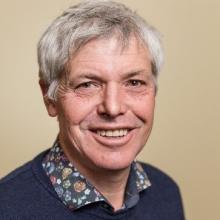 Phil Hunt
Phil Hunt
PHILL HUNT

Ward: Dunstan.
Age: 54.
Occupation: Farmer.
Question 1:
Investing in environmental spending now will maintain lower overall rate rises in the future. We have generally good water quality in Otago and it is cheaper to maintain this than to fix any future problems that is caused by not collecting adequate data and monitoring trends.
Question 2:
Otago deserves a more collaborative and open regional council with a continued focus on the environment and a respect for economic drivers within the whole of Otago. Increasing the quality of urban water discharges, working with irrigators and other NGOs to build secondary water storage for future dry years, and reviewing the entire regional transport network are priorities.
 Gary Kelliher
Gary Kelliher
GARY KELLIHER

Constituency: Dunstan.
Age: 47.
Occupation: Businessman/farmer.
Question 1:
I definitely think it is important for the ORC to increase their environmental work in the region, however I believe this can be done without increasing rates, or further burdening the ratepayers. The ratepayers have been suffering substantial rates increases year after year, always for specific additional work streams, however ORC then either underspends on budgets, or defers critical deadlines. Better use of ORC's substantial assets can provide for key environmental projects, with stable rates.
Question 2:
My goals are to improve ORC's interaction with, and understanding of, community. Ensure balanced and sustainable outcomes for the big-ticket items currently on ORC's agenda that community can trust and have faith in. Decision-making based on science and facts. Outcomes that ensure a healthy environment, and a thriving economy. Otago needs a functioning ORC that represents all factions of Otago's community, factors climate change and ensures resilience throughout the region for future generations.
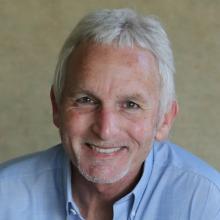 Michael Laws
Michael Laws
MICHAEL LAWS

Constituency: Dunstan.
Age: 61 years.
Occupation: Advocate-general.
Question 1:
The ORC has the lowest regional rates in New Zealand because it doesn't do much. It's been a reactive council, so there is an outstanding deficit of environmental work required. Incredibly the ORC has prioritised a new $30million-plus HQ building over the environmental work and investment required in our region. Get rid of that HQ building, relocate the staff to where the work is, and Otago can have both increased environmental investment AND low rates.
Question 2:
The decisions we make in the next term will influence the next 25 years. Priority number one must be water: both enhancing quality and confirming quantity. We must not only invest in quality science but hold rural and urban areas to the same standards, including territorial authorities. A reformed pest strategy, the enhancement of biodiversity, an equitable air policy, plus more open and honest communications with our communities - these, too, must be our priorities.
Moeraki
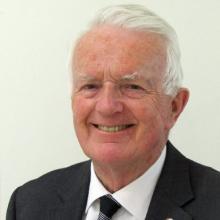 Alex Familton
Alex Familton
ALEX FAMILTON

Constituency: Moeraki.
Age: 77
Occupation: Education/farmer MNZM, Dip.Ed, BSc.
Question 1:
Otago Regional Council's plans have changed recently by extending the deadline, by three years, on two rules: contaminant thresholds in water and nitrogen leaching. This gives time to align monitoring, measuring and management systems, review office space and assist stakeholders, through education and collaboration. These changes have the potential to decrease ORC's workload and rates by: spreading cost, reducing litigation, and building on ``best practice'' being established, and led, by farming and business stakeholders. Collaborative interactions cost less!
Question 2:
No priority/Govt inputs changing. 1. Establish long-term sustainability planning, to 2050. Establish with central government priorities for research. Decrease greenhouse gases; need correctly set targets 2.Maximise water quality; income from export royalties. Sequestration research; wildings, pasture, native plants, manuka. Assess technology; monitoring and measuring - the base for managing. 3. Monitor macro invertebrates, ecosystems; minimise physio-chemical analysis. Reassess land potentiality; market gardens, pine plantations, flood zones. 4. Review dam rules; minimise consultants and rules. Balance economic and environmental factors; alleviate stakeholder stress.
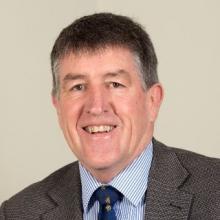 Kevin Malcolm
Kevin Malcolm
KEVIN MALCOLM

Constituency: Moeraki.
Age: 60.
Occupation: FMG business development manager.
Question 1:
Our province has reached a point where it is essential for all of us to take responsibility to deliver an exciting and sustainable environment for future generations. The level of environmental activity must be governed by the formation and implementation of sound policy and collaboration with our community. Rates must be determined by the delivery of essential and community requested services. It's your money so let's spend it to get the very best outcomes.
Question 2:
One simple goal "The very best Otago possible''. Key priorities - Create and reshape policy to ensure we protect and enhance both our social and physical environments. Ensure our team - councillors, staff, community - have a platform to deliver great outcomes and a positive future. Step 1 - I respectfully ask for your vote for the Moeraki Constituency.
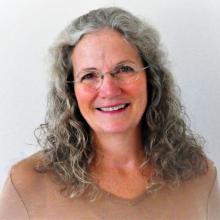 Gail May-Sherman
Gail May-Sherman
GAIL MAY-SHERMAN

Constituency: Moeraki.
Age: 56.
Occupation: Business owner.
Question 1:
We have a moral obligation to monitor and improve the health of our environment in response to climate change. This will require establishing different spending priorities and be an expensive, long-term investment. In order to keep rates at a minimum, the cost should be spread over 20 years, using deficit spending, public/private financing partnerships, and other financial tools.Wise choices about our priorities should not inflict an unfair economic burden on ratepayers.
Question 2:
Our top priority is improving water quality and safeguarding water supplies.In doing so, we must improve our community outreach and promote holistic, research-based land use practices. This will improve carbon sequestration, reduce emissions and improve resilience to changing conditions in our economy and climate. We must plan for more extreme weather events, including flooding, droughts, and increased temperatures. And we must transition to more efficient and responsible technologies for transportation and electricity distribution.
 Judith Borrie-Stevenson
Judith Borrie-Stevenson
JUDITH BORRIE-STEVENSON

Constituency: Moeraki.
Age: 67.
Occupation: Retired educational assessor.
Question 1:
It is more important to increase the Council's environmental work than to concentrate on halting rates. However, the recent increases must be justified and surely perpetrators need to be fined more and the money put to fixing their damage instead of using the General Fund. Pests will not wait to be caught. Our waterways are sick, not to mention their users and consumers. Time is of the essence.
Question 2:
Hopefully, my goals will align with the priorities of the council. I believe in prevention, as well as cure. Our soil, sea and sky need to be protected more from greed and need to be equitably managed better in the true spirit of the Resource Management Act. After all that was the whole point of it. Erosion due to climate changes will have to be counteracted and species which fail to adapt to modifications in their habitat will reduce biodiversity.
GORDON DICKSON
No response received by publication deadline.
Molyneux
 Robert Hamlin
Robert Hamlin
ROBERT HAMLIN

Constituency: Molyneux.
Age: 58.
Occupation: University lecturer.
Question 1:
This is not an "either/or'' question, even though many in local government might wish the electorate to perceive it as such. Since 2002 rates have risen far more rapidly than inflation, but with very little in additional outcomes to show for it. The last rates rise was enormous. If council was to be more efficient in how it works and allocates contracts to outsiders, then improved environmental outcomes can be delivered without rates increases.
Question 2:
Firstly, to increase efficiency and improve input/output ratios. Despite massive recent rates rises, the council this year still relied on ``reserves'' for a large slice of its income. Its expenditure has nearly doubled in the last two years - why? Secondly, to keep the port in 100% ORC ownership - we have all heard the murmurs. Thirdly, to sort out the water allocation in Otago before it is sorted out for us by Central Government (remember ECan).
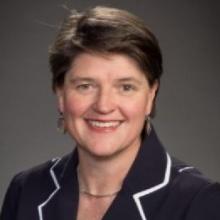 Carmen Hope
Carmen Hope
CARMEN HOPE

Constituency: Molyneux.
Age: 47.
Occupation: Councillor, Otago Regional Council.
Question 1:
Otago's population, economy, visitor numbers are growing and as a consequence ORC is dealing with environmental issues and calls from community to increase work programmes. Examples include urban subdivision controls, understanding impacts of climate control (river management for flood control/heavy rain events), biodiversity work, public transport, stopping further degradation - improving water quality; review the water plan to meet government legislation with tight timeframes. ORC funding - including investment returns, rates and Port Otago dividends.
Question 2:
I have a strong belief in community-driven solutions to the challenging issues we face, ensuring council links well with the community is my goal. The priorities are biodiversity, so ecosystems thrive, climate change, to ensure communities are resilient, water quality and quantity issues need addressed in both the urban and rural parts of our region and urban development needs managed to ensure our communities are growing sustainably and not impacting on the environment.
 Lloyd McCall
Lloyd McCall
LLOYD MCCALL

Constituency: Molyneux.
Age: 60.
Occupation: Rural professional.
Question 1: Our future generations' ability to enjoy the dynamic landscapes and pristine water Otago offers is not negotiable. It is the responsibility of everybody who lives and visits Otago to own their environmental footprint. Changing people's attitude towards the environment will provide better outcomes than regulations. This can be achieved with education and, where needed, clear enforceable rules. The existing rates model with reallocation of funds incorporating a user-pays component for environmental compliance is adequate.
Question 2: My goal is to provide clear governance and direction that enables staff to plan and execute the council's stated outcomes. Everybody working together will improve staff morale and allow a constructive interface with the public. Community engagement should be at the centre of policy decisions. My understanding of water quality issues and my ability to work with communities will be essential as the water plan is updated. Water quality and quantity is my priority.
 Andrew Velman
Andrew Velman
ANDREW VELMAN

Constituency: Molyneux.
Age: 59.
Occupation: Engineer.
Question 1:
There is no dilemma here: environment work in the region should increase and rates should be reduced in lieu of more income from commercial investments.
Question 2:
My top three priorities are: 1. Ban domestic coal burning because of greenhouse gas emissions and health issues. 2. Convert diesel buses to run on natural gas and use more electric cars in ORC fleet. 3. Fight air, water and noise pollution - make New Zealand clean, green and peaceful again!
 Kate Wilson
Kate Wilson

KATE WILSON
Constituency: Molyneux.
Age: 55.
Occupation: Councillor/farmer.
Question 1:
We can do both by using assets such as the companies better and more rigour in the financial modelling. The rates rises shouldn't be as great, but investment in monitoring and working with communities is needed to show what is working and where work is needed. Science investment and engagement will reduce costs long-term if focused on identified issues and involving communities through their plans.
Question 2:
Get better consensus of what the environment is and might be - measuring it, reporting on it, acknowledging where communities are doing a great job maintaining their environment and working with those that need to. Focus needs to be in areas of greatest risk and we have to work more collaboratively with councils on climate change scenarios, transport requirements, water quality and pest control to ensure we plan our places well and enhance our environment.












